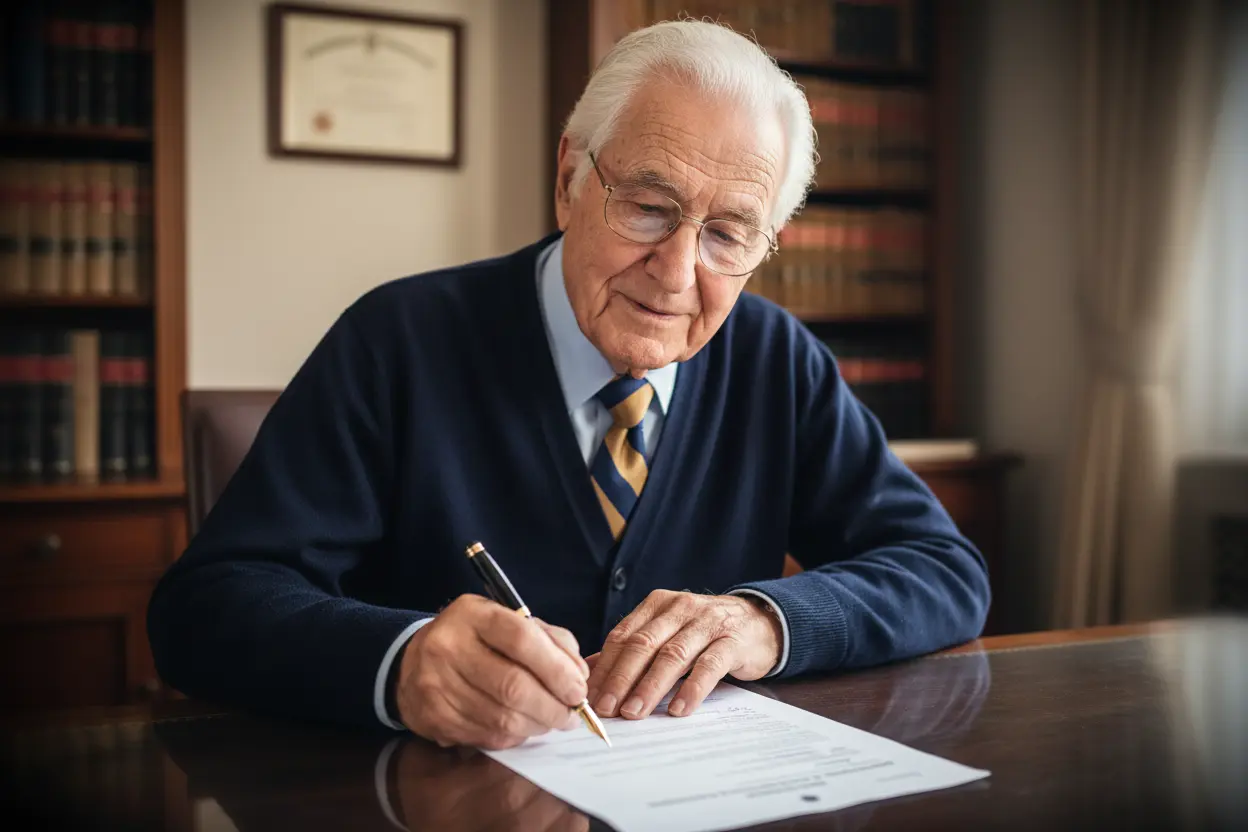Quantum Security: Not Just for Sci-Fi Anymore
In the midst of VivaTech’s buzzing halls, squeezed between AI start-ups promising to change tomorrow and tech giants showcasing their latest wonders, two unassuming Toshiba boxes are quietly rewriting the story of cybersecurity in France. Thierry Gaillet turns to me and flicks an interface:
“Look, with quantum protection enabled, the eavesdropper sees nothing,” he says. “But what’s truly mind-blowing? If someone tries to spy, the two people communicating will know—immediately and automatically.”
With just a few clicks, he reveals the future of secret communications. And that future addresses a problem most of us don’t even realize exists. As Thierry puts it:
“The issue is, hackers are already storing our encrypted communications today so they can decrypt them in 10 to 15 years. The problem with our current security, even at its best, is that we can never be 100% sure some new algorithm won’t break it all in five or ten years.”
He starts by laying out our current vulnerabilities. And honestly, it’s a bit chilling:
“You know all our current security—the RSA algorithm, digital signatures, our certificates—they’ll be completely obsolete in a few years,” he tells me. Of course, there’s a solution in sight.
Here’s the deal: Today’s encryption bets on the fact that it’s impossible (so far) to factorize huge numbers. Our computers would take millennia. But quantum computers? They could do it in a matter of minutes. Thierry explains:
“It’s a fragile system because it depends on factoring big numbers. All it takes is an algorithm… Luckily for us, Shor’s algorithm still isn’t working well on simulators, but the day quantum computers get powerful enough, RSA is toast.”
“Store Now, Decrypt Later”: The Eavesdropper’s Strategy
That’s how big the problem is. Cybercriminals are already stockpiling today’s encrypted communications—waiting to crack them once a quantum key arrives. As Thierry notes:
“On fiber optics, if you’ve got the right tools, grabbing some of the light signals isn’t so hard.”
The approach is called “Store Now, Decrypt Later.” That’s right: what you say in confidence today could be fair game to anyone with a quantum computer a decade from now.
Faced with this, Orange is betting on something radically different. Instead of relying on mathematical cleverness, they’re harnessing the laws of quantum physics. Now that’s genuinely revolutionary.
Thierry points at the Toshiba equipment:
“We handle light particles—photons—polarizing them or encoding their phase, like in this case. If someone tries to spy in the middle, they automatically change the quantum state. As soon as you measure, it destroys the quantum state. That’s physics, full stop.”
To put it simply: Imagine mailing a message in a magic envelope that self-destructs the second someone other than the intended recipient tries to open it. Only here, it’s not magic—it’s pure physics.
As Thierry confidently says:
“This isn’t a mathematical algorithm or software. It’s pure physics. That’s why we can really trust it.”
Staying Ahead of Obsolescence: Quantum + Algorithmic Updates
Back at the booth, Thierry brings up a topic we all tend to neglect: digital security goes obsolete, fast.
“What got expert approval just last August might not be reliable in ten years. We’ll make sure our clients benefit from quantum tech, but also from algorithms that are regularly updated.”
It’s a bit like never updating your antivirus—except here, your entire digital economy is at stake. Thierry continues:
“Sometimes, you just have to boost what’s there, like doubling key sizes. And for new algorithms, same story. We can never guarantee we won’t need more updates.”
To help clients, Orange offers a full audit of your security. Thierry explains:
“We do a kind of inventory to help you spot the most critical points, what needs urgent updating.”
Probes installed at clients’ sites detect old protocols still lingering. Then you get recommendations:
“This system is really at risk—update it now. That one is so critical you should switch it to quantum.”
That step-by-step approach lets organizations invest where it matters most.
To show me the quantum magic, Thierry walks me through a live demo on the stand:
“Each box handles sending and receiving streams of photons. The amazing bit? Only the intended recipient can measure the photon’s state and recover the secret.”
This ensures both parties instantly know if someone tried to listen in. Thierry adds:
“That means you can reroute or stop the exchange immediately. With regular algorithms, you never really have that level of security.”
How are quantum keys generated? Thierry keeps it simple:
“Imagine a photon launcher firing them at a 50/50 splitter. They get randomly distributed left or right—thanks to quantum physics—creating truly random bits.”
This means total unpredictability—impossible to clone or anticipate. As Thierry puts it:
“You end up with unbreakable encryption, as long as you use the one-time pad technique—a key at least as long as the message.”
A Layered Approach: Quantum Meets Post-Quantum Cryptography
Orange Quantum Defender isn’t about putting all your eggs in one basket. It smartly combines quantum “magic” and post-quantum cryptography (PQC) for layered protection. Thierry breaks it down:
“Concretely, we mix the two: our usual mathematical crypto plus quantum key exchange, then blend the keys for the best protection.”
This directly counters “Store Now, Decrypt Later” attacks. As Thierry notes:
“What’s great is, this combo gives us tomorrow’s security, today.”
PQC handles all the certificate and authentication stuff, while quantum key distribution (QKD) ensures no one can snoop on your keys.
First big client? A major player in financial services is already using this to connect several of its sites and protect super-sensitive data. Thierry sums up:
“Most truly critical apps today run between highly sensitive client sites and a data center.”
Installation is seamless on Orange’s commercial fiber network.
“Orange Business, just as they already install routers and security gear, can set up these quantum boxes for clients.”
Collaborations with cloud giants—Microsoft, Google, Amazon—unlock new options. Securing your most confidential cloud-bound communications? Absolutely.
The Quantum Race: Where Are We Now?
Curious about how fast the quantum threat is approaching, I ask Thierry about today’s quantum computers. His reply offers short-term reassurance, but makes the future clear:
“D-Wave, for example—they’ve got lots of qubits, but really just for optimization problems. Luckily, they can’t run Shor’s algorithm yet.”
He adds:
“They use plenty of qubits set to energy states and do annealing—let the system relax to find solutions. It’s for optimization. Logical qubits, like those at IBM or Google, are different. IBM and Google will tell you: about 1,000 physical qubits are needed for one reliable logical qubit due to errors.”
France is a contender here too, with C12 developing a promising approach with fewer, higher-quality qubits.
But Thierry is frank about current limits:
“We don’t have a quantum repeater yet. If you use a regular optical repeater, it doesn’t work—it destroys the quantum state. There’s no way to repeat the signal.”
Research teams are working on innovations like quantum memory:
“Photon coherence is super-short, a few nanoseconds. But quantum memory gets us millisecond scales—huge at this level,” he says, eyes sparkling.
This is truly international, working with European partners on cross-border quantum links—like between Bundesbank (Germany) and Banque de France.
All this research is part of EuroQCI, Europe’s push to build interconnected national quantum networks. Orange is leading the French charge with FranceQCI, building on their ParisRegionQCI pilot—which proved QKD works on existing fiber, including the stretch from Saclay to downtown Paris (about 50 miles).
“You can really feel the momentum… Not long ago, Airbus was touting quantum geopositioning to replace GPS,” Thierry says. These huge stakes explain why “national sovereignty is on the line.”
Beyond cryptography, quantum tech means strategic game-changers:
“We use the extreme sensitivity as an asset—you can detect gravity shifts, movement, even guide missiles. The geostrategic upside is massive.”
Looking ahead, Thierry shares a vision that’s positively dizzying. In a few years, quantum networks won’t just be about distributing keys:
“In 10 years, we’ll have full quantum networks. The idea is you’ll be able to extend quantum states between computers for quantum teleportation between sites.”
Imagine linking distant quantum computers for mind-blowing distributed power. Thierry, grinning, adds:
“It won’t go faster than light—Einstein can rest easy—but it’s still incredible, because you preserve the quantum state.”
He outlines the technical hurdles:
“We do entanglement, entanglement ‘swap’. When you have different systems chained together, you can extend the links.”
Still, advances in quantum memory and remote entanglement will be needed.
The industrial maturity of Orange Quantum Defender is another key point for Thierry:
“What we offer our clients is proven. Latest technology, but stable and ready for business.”
You can slot this gear alongside your existing Cisco, Fortinet, or Palo Alto systems. The quantum box will just handle the keys.
There’s a real-world, budget-minded approach: some gear just needs a classical crypto update, while ultra-critical lines get full-on quantum gear.
Cost remains a challenge, as explained by Thomas Rivera in discussions about ParisRegionQCI:
“To secure a link less than 60 miles on dedicated fiber, you’re looking at €180,000–€250,000 just for QKD.”
Orange cleverly sidesteps some of this by leveraging its existing infrastructure:
“We bet on using infrastructure that’s already there—some active, others just waiting for the right client need.”
The conversation naturally turns to global stakes:
“A lot of money’s been invested to really kickstart quantum computing—because national sovereignty is at play,” Thierry confides.
That’s why public and private investment in quantum technology is sprinting ahead. Countries mastering it will enjoy huge strategic benefits—protecting not only their own communications but also uncovering rival weaknesses.
Orange is positioning France—and Europe—as a major force, building links with partners across the continent. The goal: an autonomous European quantum ecosystem.
It’s fascinating: quantum isn’t just a chipset race among global giants. There’s a vision of a future where quantum physics shields our most precious data from any attacker, no matter how wild technology gets. And the wildest part? This future has already begun.

John is a curious mind who loves to write about diverse topics. Passionate about sharing his thoughts and perspectives, he enjoys sparking conversations and encouraging discovery. For him, every subject is an invitation to discuss and learn.






